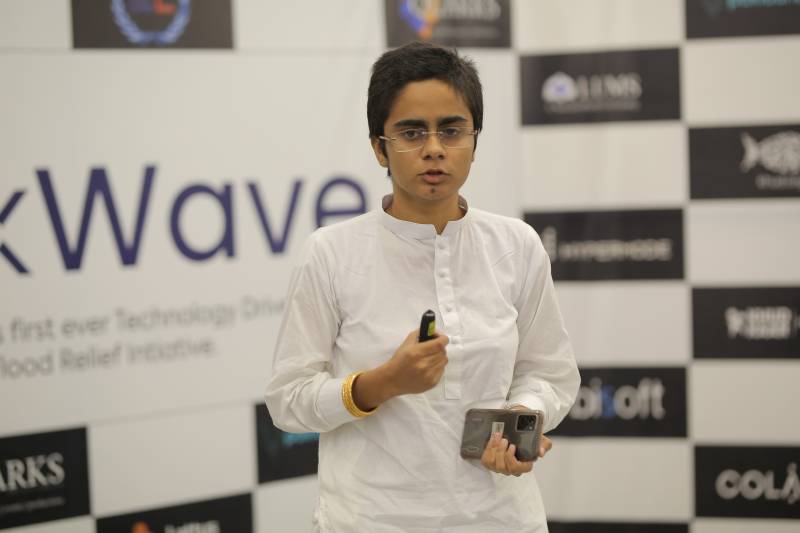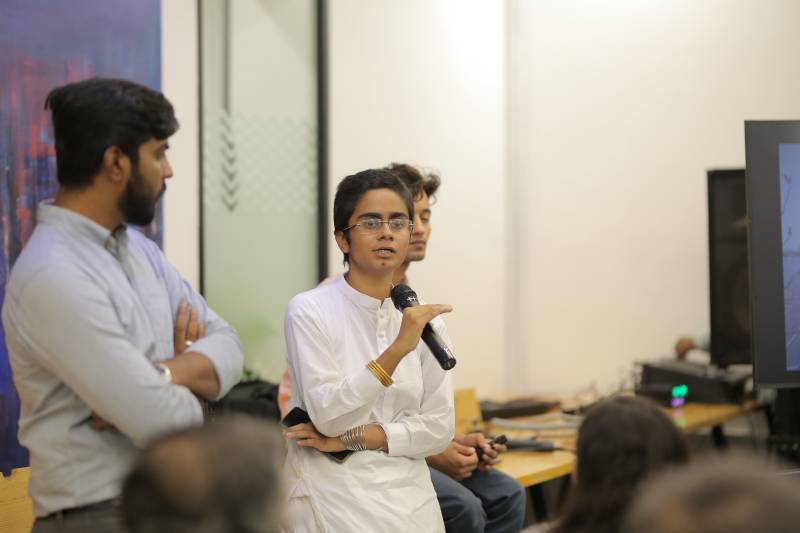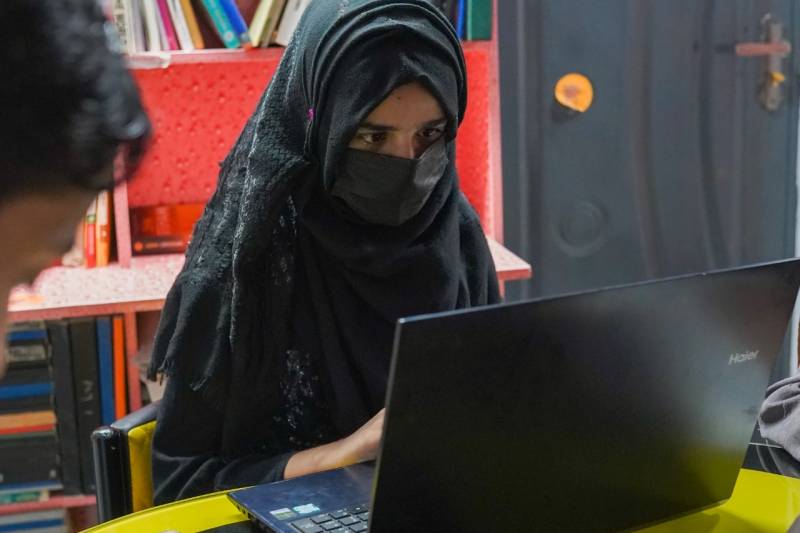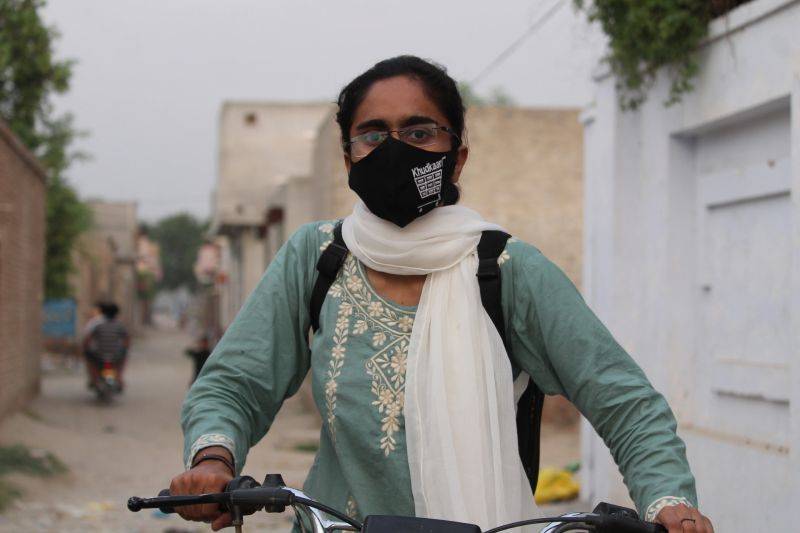Hailing from Layyah, Wardah Noor has been a self-starter throughout her life. Like many young Pakistanis who are compelled to make something out of themselves to change the trajectory of their family’s financially constrained lives, Wardah too, was duty-bound from an early age.
Through relentless adversities, an overarching sense of scarcity and a lack of opportunities, one of two things can take root in one’s heart: an elevated sense of empathy, or a deadened, numb – and at times – self-serving approach to life.
For Wardah, it was the former which eventually shaped her personality and perception of the world around her. Since her school years, education was the way out from the matrix of how things continuously play out – generation after generation. Landing scholarships all the way up to her FSc degree, the young entrepreneur eventually landed a full scholarship to one of the country’s best universities – LUMS.
Over the years, Wardah is now recognized as a social entrepreneur with heart, consistently driven by the surge to give back to her community and her country. And her hard work hasn’t gone unnoticed. Far from it. With a Youth Excellence Award from the Prime Minister of Pakistan, recognition as part of the Twenty Five Under Twenty Five by the Australian Awards, and a fellowship in the Starling Collective by Giving Tuesday, Wardah remains driven by youth empowerment and tangible social impact.
But these aren’t just fancy words tossed around in an apathetic word salad, Wardah lives and breathes her work and vision every single day.
Currently the founder of xWave, a social enterprise spearheaded to train underprivileged young men and women in cutting-edge tech skills – particularly those affected by Pakistan’s disastrous 2022 floods, xWave also provides them with employment opportunities to set them up for life.
Wardah's grand vision extends beyond immediate relief. With a goal to create a staggering $1 billion economic impact for Pakistan through xWave, she aspires to train and place 10,000 students across 70 digital labs in the country. An ambitious goal, but who said it can’t be accomplished? And who better than Wardah to lead the movement…
Q: Training and placing 10,000 students across 70 digital labs in Pakistan is a significant undertaking. How do you plan to scale xWave, and what challenges do you anticipate in achieving this scale?
One of our biggest challenges is funding that we are intensively addressing this year through a focused funding strategy. We are exploring various ideas, including the long-term goal of making Xwave a self-sustainable model.
Moreover, a widespread cultural mindset in Pakistan revolves around the pursuit of overnight success. Local influencers on platforms like Instagram, Facebook, and TikTok, particularly in the field of IT skills, often advertise short bootcamps with promises that enrolling in a one-month course can turn you into a graphic designer or enable you to master frontend development in three months! While this may be feasible for some, a majority of the youth in Pakistan, especially those in rural areas, lack basic skills. Despite this, they are constantly exposed to these videos, leading to unrealistic expectations.
This becomes particularly challenging when we launch programs in new areas, requiring us to invest substantial effort in altering the mindset that success can be achieved overnight. This task is crucial given that our courses typically span from 8 to 12 months, and a considerable part of our budget is allocated towards addressing and changing this perception.
Q: Your team's efforts during the COVID-19 pandemic, such as providing ration bags, distributing PPE suits, and offering scholarships, are commendable. How did these initiatives come about, and what impact did they have on the community?
During the Covid pandemic, I was quite active on social media. One day, I received a message on Facebook from a shop owner near a local university in Layyah, expressing his struggle to earn a living due to Covid-related restrictions and his inability to afford essential supplies. At that time, my university was closed, and being at home, we decided to provide ration bags for at least 15 families in the area.
I posted a call for help on the university group, initiating a fundraising campaign. The response was overwhelming, with numerous messages pouring in from people in need. As the situation worsened with a complete lockdown, we broadened our outreach by posting on Facebook, inviting anyone in Layyah requiring ration assistance to reach out to us. Conducting surveys, we identified areas and colonies predominantly inhabited by laborers and their families, ensuring they received ration support. This marked the beginning, and eventually, we were able to provide ration bags to 3,000 families. Following this, we shifted our focus to distributing PPE suits for medical professionals after a doctor in Layyah succumbed to Covid due to a lack of facilities.
Our scholarship initiative, Future Pakistan, spearheaded by me along with other students, predates Covid. Led by a youth-run team, we offered monthly stipends to Matric and FSc students, covering their fees and transportation costs, utilising funds raised from our network.
Q: Your vision includes empowering women entrepreneurs. How does xWave specifically contribute to empowering women, and what challenges have you faced in promoting gender equality within your programs?
We strongly promote women's participation and make deliberate efforts to maintain an equal gender ratio in our admissions. However, a significant challenge arises when girls face difficulty obtaining permission from their families. The hurdles extend to commuting to and from an xWave lab, resulting in missed opportunities for women. Overall, there is a prevalent resistance to women's education, rooted in the perception that there is limited value in educating women. Addressing this mindset is a key challenge that the team is actively working to overcome. Also, we customise our courses to better suit the needs of female participants, hoping to create an inclusive learning environment.
Q: While numbers and economic impact are essential metrics, how do you measure success on a more personal level, especially in terms of individual stories or transformations among the underprivileged youth you train?
At xWave, we allocate one academic coordinator for every batch of 30-40 students. Each student engages in a monthly one-on-one session with their coordinator, delving into personal aspects of their lives, journeys, and challenges. This ongoing interaction allows us to follow the unique stories and post-xWave experiences of our students.
For instance, consider one of our students from Kingri, Sindh, who faced adversity when his poultry farm was lost during the 2022 floods. Following his completion of the course with xWave, he actively pursued job opportunities through LinkedIn and secured an offer from a company in Jordan. During the interview, despite facing internet issues due to constant load shedding in his area, the student went to a nearby shop, climbed onto the roof, and conducted the interview. Rather than making excuses, he found a solution, even practicing his English-speaking skills with his friends prior to the interview. This extraordinary transformation is a testament to the distance he has come from his initial days at xWave.
Q: Wardah, what's your biggest dream?
My biggest dream would be to see a poverty-free Pakistan. I envision a country where no one goes to bed hungry, has complete food security and isn’t deprived of educational and health facilities.





